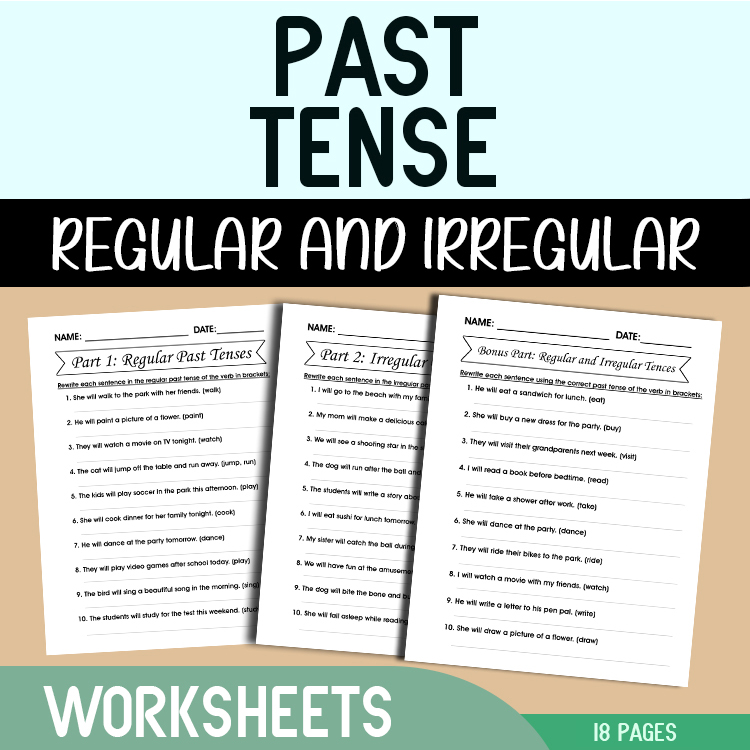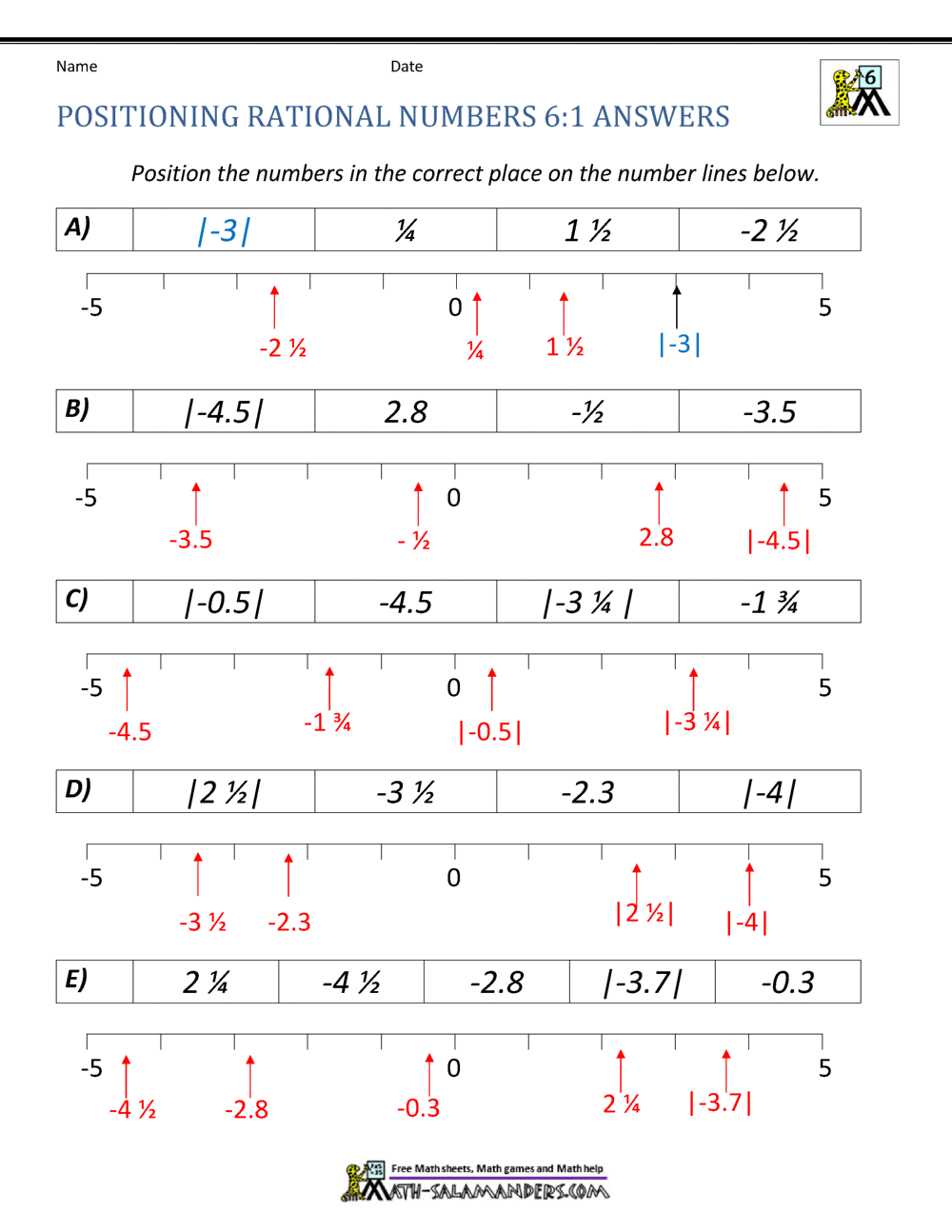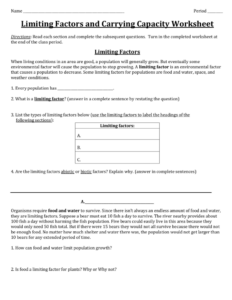7 Ways to Manage Teen Anger with Worksheets
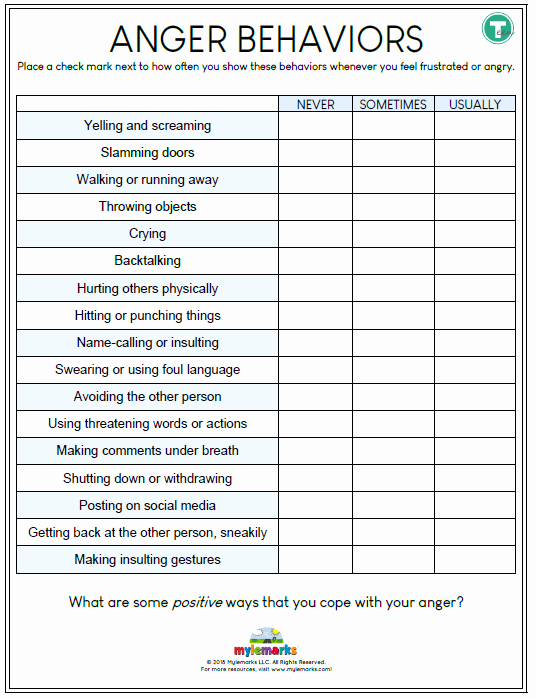
Understanding Teen Anger
Teen anger is a common and normal part of adolescent development. During this stage, teenagers undergo significant physical, emotional, and social changes that can lead to feelings of frustration, irritability, and anger. As a parent, educator, or mental health professional, it’s essential to understand the underlying causes of teen anger and develop effective strategies to manage it.
Causes of Teen Anger
Teen anger can stem from various factors, including:
- Hormonal changes: Fluctuations in hormone levels, particularly testosterone and estrogen, can contribute to mood swings and irritability.
- Social pressures: Peer relationships, social media, and academic expectations can create stress and anxiety, leading to anger.
- Family conflicts: Arguments with parents or caregivers can trigger feelings of anger and resentment.
- Bullying: Verbal or physical bullying can cause significant emotional distress and anger.
- Trauma: Experiencing traumatic events, such as abuse or neglect, can lead to anger and aggression.
- Mental health issues: Underlying mental health conditions, like depression or anxiety disorders, can contribute to anger.
7 Ways to Manage Teen Anger with Worksheets
Here are seven strategies to help manage teen anger, accompanied by worksheets to facilitate the process:
1. Identify Triggers
Help teens identify the situations, people, or events that trigger their anger. This can be done using a Trigger Identification Worksheet:
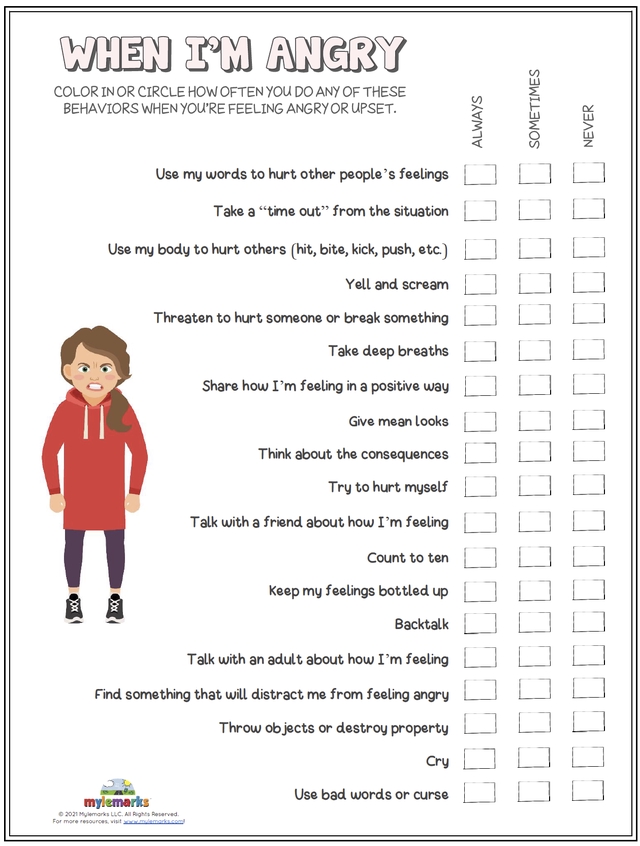
| Trigger | How I feel | What I do |
|---|---|---|
| What happened? | How did I feel? | What actions did I take? |
| Example: Argument with a friend | Angry, hurt, frustrated | Yelled, stormed off |
2. Practice Relaxation Techniques
Teach teens relaxation techniques, such as deep breathing, progressive muscle relaxation, or visualization. These can help calm the body and mind, reducing anger. Try a Relaxation Techniques Worksheet:
- Deep breathing: Inhale deeply through the nose, hold for 5 seconds, exhale slowly through the mouth.
- Progressive muscle relaxation: Tense and then relax different muscle groups (e.g., shoulders, arms, legs).
- Visualization: Imagine a peaceful, calming scene (e.g., a beach, a forest).
3. Use Positive Self-Talk
Encourage teens to practice positive self-talk, reframing negative thoughts and replacing them with constructive, affirming statements. A Positive Self-Talk Worksheet can help:
- Negative thought: I’m so stupid for making that mistake.
- Reframe: I made a mistake, but I can learn from it.
- Affirmation: I am capable and competent.
4. Develop Problem-Solving Skills
Help teens develop problem-solving skills to address situations that trigger anger. A Problem-Solving Worksheet can guide the process:
- Identify the problem: What’s causing my anger?
- Brainstorm solutions: What are some possible solutions?
- Evaluate options: Which solution is most effective?
- Implement the solution: What steps will I take to solve the problem?
5. Practice Empathy
Encourage teens to consider others’ perspectives and practice empathy. A Perspective-Taking Worksheet can facilitate this:
- Imagine the other person’s feelings: How might they feel in this situation?
- Understand their needs: What do they need from me?
- Respond with empathy: How can I respond in a way that acknowledges their feelings and needs?
6. Use Physical Activity
Physical activity can help reduce anger and anxiety. Suggest healthy physical activities, such as exercise, sports, or yoga. A Physical Activity Worksheet can help teens identify their preferences:
- Favorite physical activities: What do I enjoy doing?
- Benefits of physical activity: How does physical activity make me feel?
- Schedule physical activity: When can I incorporate physical activity into my daily routine?
7. Keep a Journal
Encourage teens to keep a journal to express and process their emotions, including anger. A Journaling Worksheet can provide prompts:
- What happened?: Describe the situation that triggered my anger.
- How did I feel?: What emotions did I experience?
- What did I do?: How did I respond to the situation?
💡 Note: These worksheets are not a replacement for professional therapy or counseling. If a teen is struggling with intense or persistent anger, it's essential to seek help from a qualified mental health professional.
By using these worksheets and strategies, teens can develop essential skills to manage anger and improve their emotional well-being.
As we conclude, it’s essential to remember that managing teen anger is an ongoing process that requires patience, understanding, and support. By working together with teens and using these evidence-based strategies, we can help them develop the skills and resilience needed to navigate the challenges of adolescence and beyond.
Related Terms:
- Free anger management worksheets PDF
- Free printable anger management worksheets
- Anger management workbook free PDF
- Anger triggers worksheet PDF
- Anger management worksheets for Adults
- Anger management worksheets for kids

